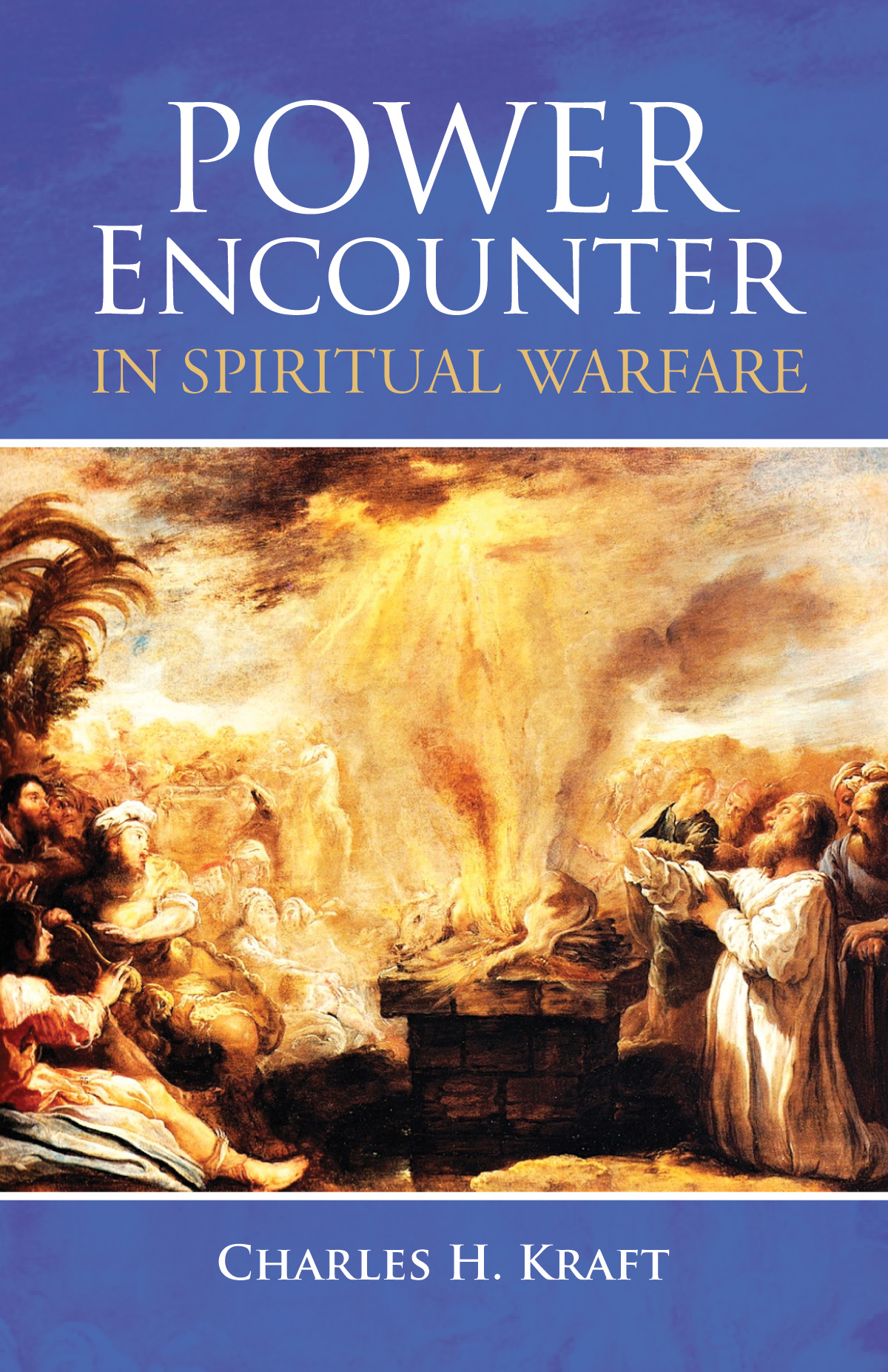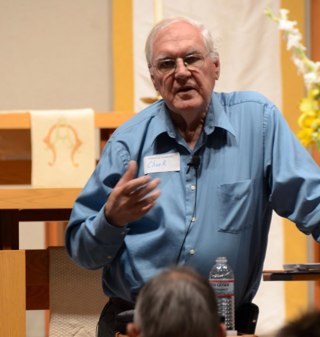Charles Kraft: Power Encounter In Spiritual Warfare
 Charles H. Kraft, Power Encounter In Spiritual Warfare (Eugene, Oregon: Wipf & Stock, 2017), 124 pages, ISBN 9781532617140.
Charles H. Kraft, Power Encounter In Spiritual Warfare (Eugene, Oregon: Wipf & Stock, 2017), 124 pages, ISBN 9781532617140.
Charles Kraft has taught at Fuller Seminary and has served as a missionary in Nigeria. In addition to these ministries he has also written a number of books including: Christianity With Power: Your Worldview and Your Experience of the Supernatural, The Evangelical’s Guide To Spiritual Warfare: Scriptural Insights and Practical Instruction On Facing the Enemy, Defeating Dark Angels: Breaking Demonic Oppression in the Believer’s Life, and I Give You Authority: Practicing the Authority Jesus Gave Us. This brief sampling of titles indicates that the topics of spiritual power and spiritual conflict are subjects of great interest to him; he has written about them a number of times. This, his newest book, also deals with the subject of spiritual conflict or spiritual warfare, specifically the power encounter.
The author says that the term “Power Encounter” came from the late Alan Trippett who was a missiologist at Fuller Seminary (page 1). Kraft describes a power encounter as “an encounter or confrontation between false gods and the true God” (page 3). Trippett reported that this type of encounter brought large numbers of people to Christ in the South Pacific when they saw that the Christian God was superior to their ancestral gods (page 1). Conversions took place when a priest or chief challenged the ancestral gods and broke their allegiances to them and the ancestral gods could not respond (page 2). Kraft points out that power encounters are now widely accepted by missiologists as valuable in the work of evangelism (page 2). Also in chapter one, he draws from a couple of Trippett’s reports about power encounters in the South Pacific in order to illustrate what they are. Kraft says that some power encounters are unsought but others, such as those in the Bible between Moses and Pharaoh, and Elijah and the prophets of Baal and those in the South Pacific, were sought in that they were open challenges (page 10). The author does not point out the events from Scripture and the South Pacific for merely historical purposes. He believes that the church today, like Jesus and the early church, ought to exhibit spiritual power such as we see in the Bible which includes healings and deliverances (page 15).

Read articles by Charles Kraft at PneumaReview.com
In chapter 2, Kraft surveys a number of power encounters in Scripture, drawing examples from both the Old and New Testaments. These are clearly conflicts between good and evil, some of the ones he mentions include: Moses and Pharaoh, Elijah and the prophets of Baal, Jesus and Satan in the wilderness, and Paul and the demon-possessed girl in Acts 16. In chapters 3, 4, and 5, Kraft sets forth principles related to spiritual warfare. One very important point he makes in chapter 3 is that many in the West tend to view most spiritual beings and spiritual power as the things that fairy tales are made of (page 32). This can be true with reference to both the supernatural power of God and of the enemy (pages 32-33). This is what is sometimes called the anti-supernatural Western mindset. At least in part, this book seeks to serve as a corrective to that error. In chapter 5, Kraft is clear that though there is a kingdom of darkness and the kingdom of God, the rulers of these kingdoms are not equal; God is much more powerful than Satan (page 48).


